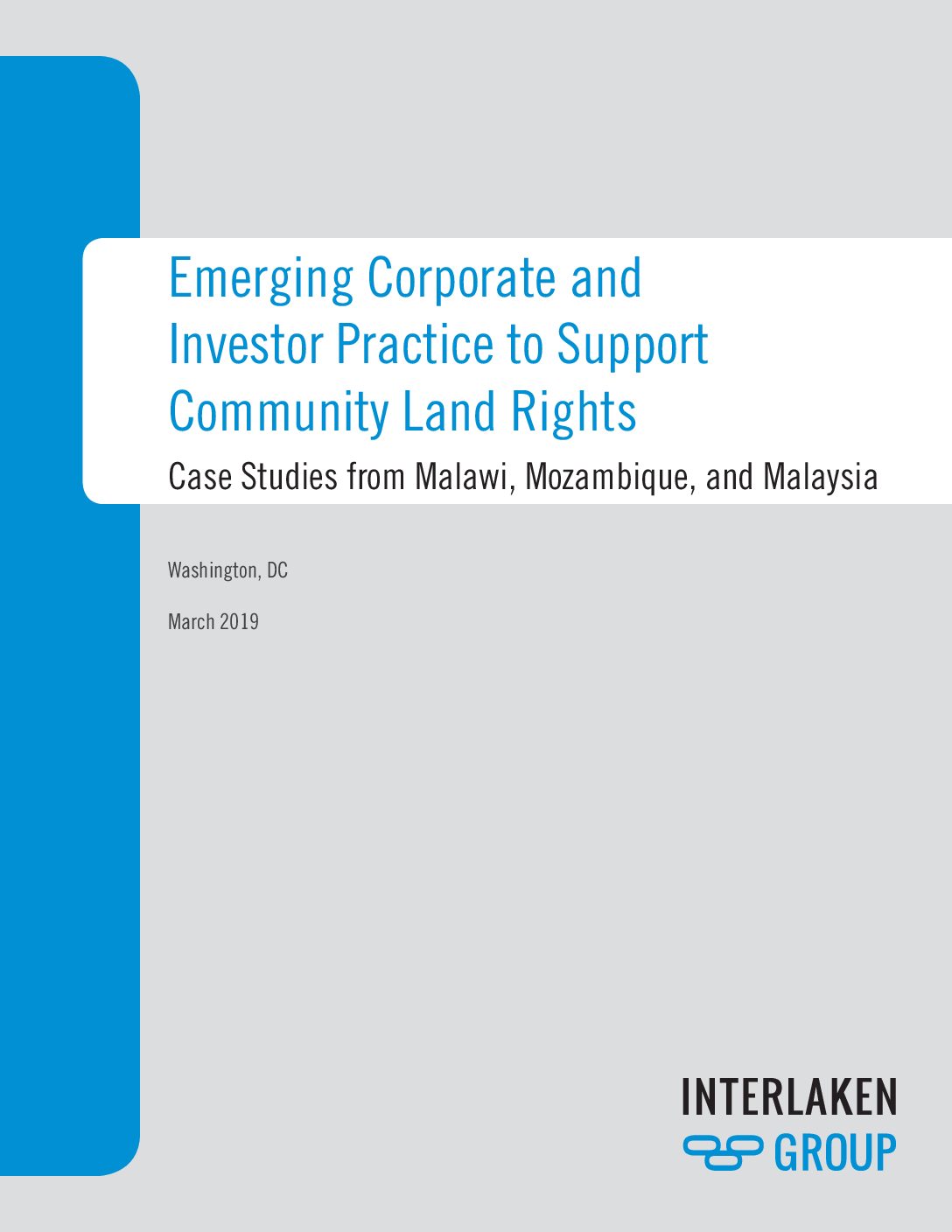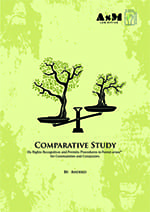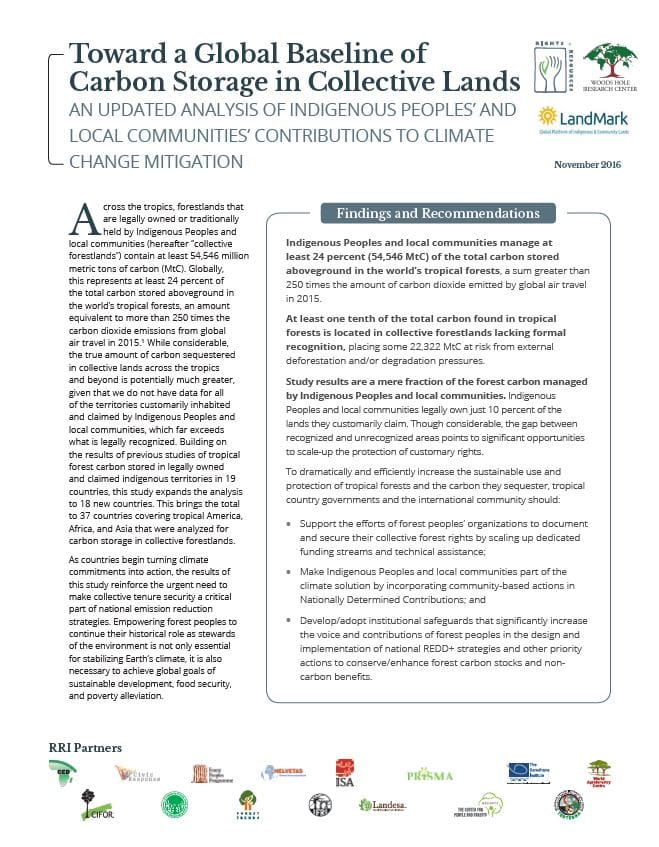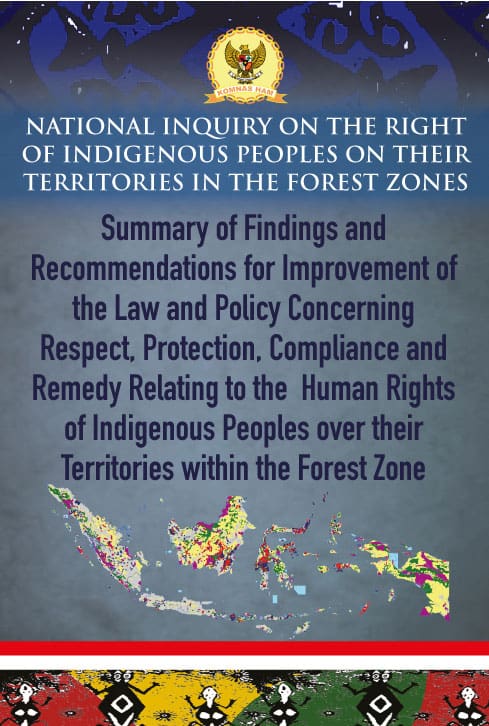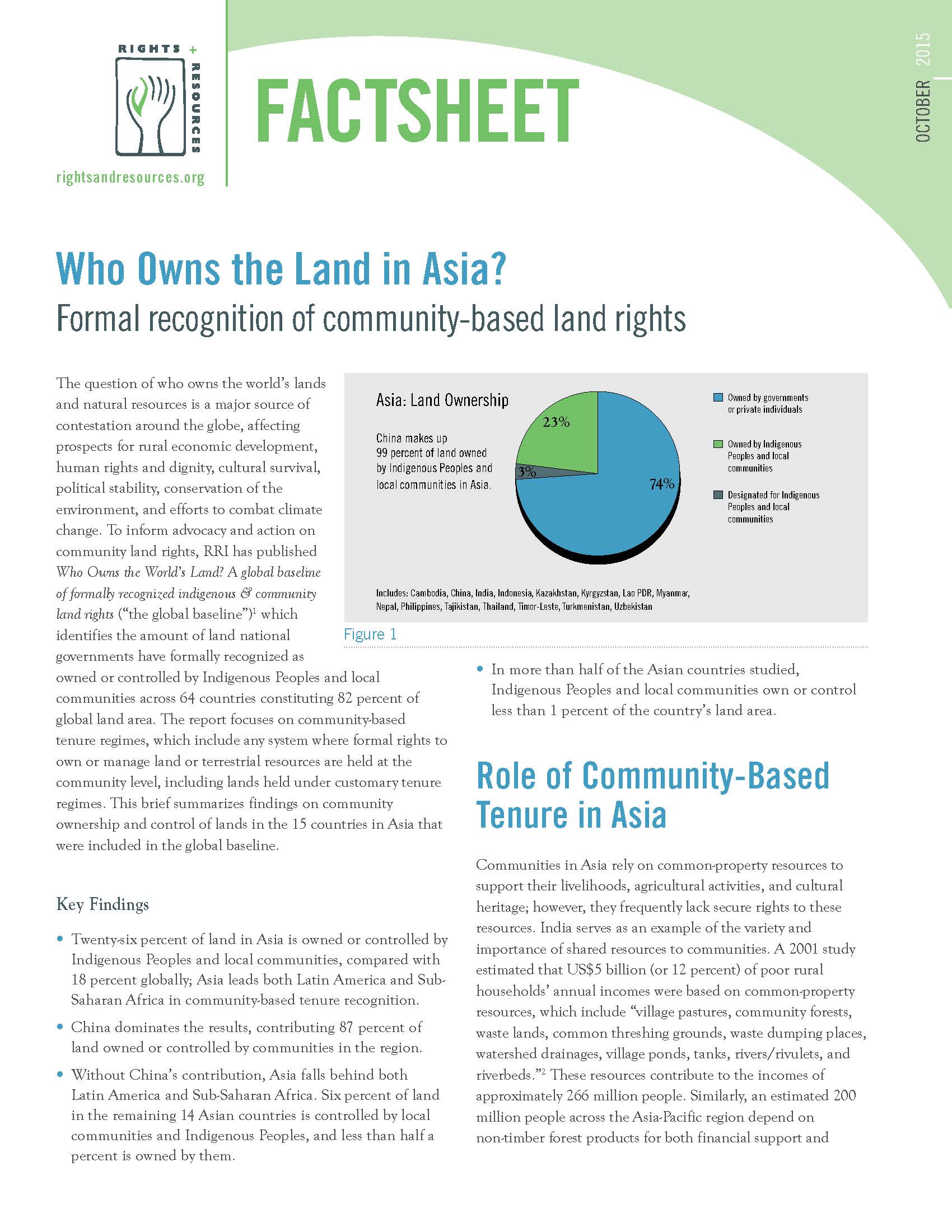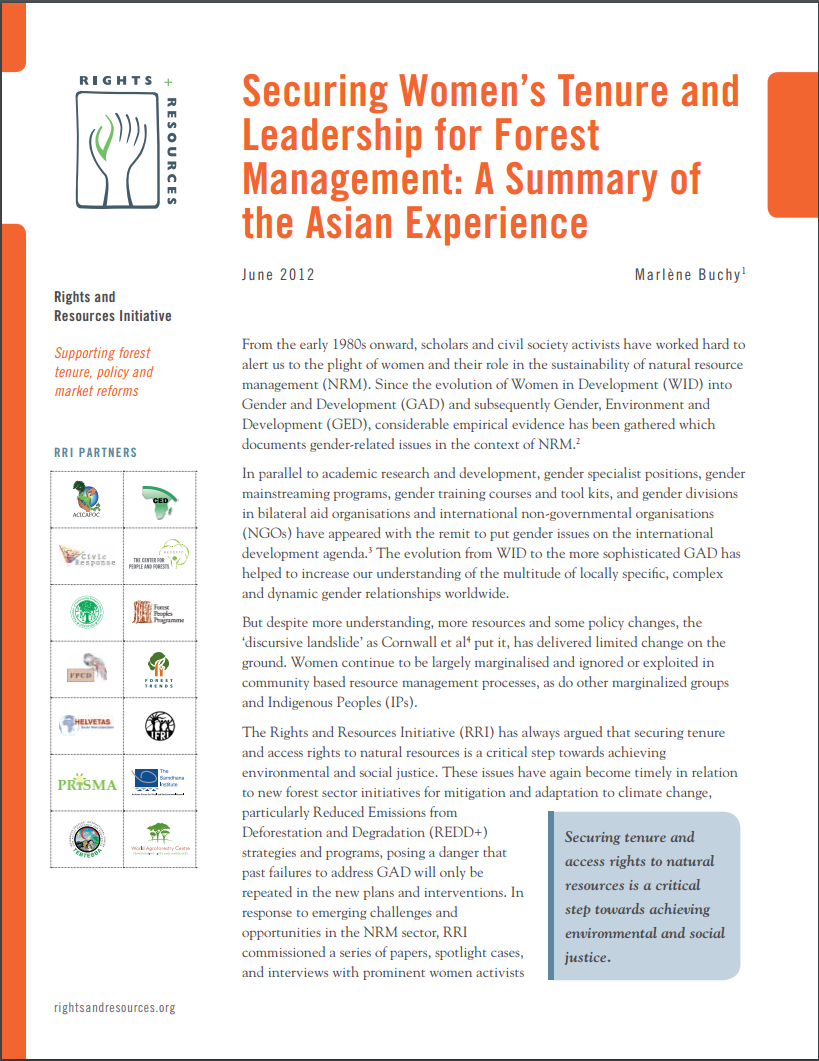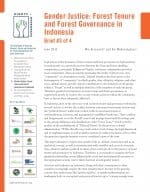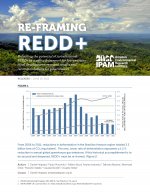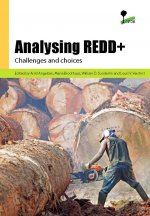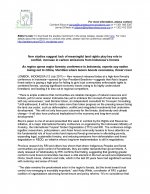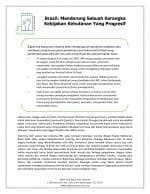Through examples of Indigenous Peoples’, Afro-descendant Peoples’, and local communities’ movements from the Maya Biosphere Reserve in Guatemala, the Enggano island in Indonesia, India's Bastar region, the Sinangoe in the Ecuadorian Amazon, and Colombia, the report presents best practices from communities defending their territories and cultures.
From August 19–22, 2024, public forest agency leaders within the MegaFlorestais network from some of the world's most forested countries met in the state of Pará in northcentral Brazil. They gathered to learn about ongoing forest management programs, progress and challenges of elevating the role of community-led conservation, preventing forest loss, and promoting restoration and reforestation around the world.
This edition is in Bahasa Indonesia; full English report is coming soon! Co-authored by 16 organizations from across Asia—spanning youth groups, Indigenous networks, and ally organizations—this new report collates and brings to the fore the experiences and leadership of youth activists from across the continent into a call to action.
This document shares emerging ideas, principles, and good practices to socialize the concept of community monitoring among companies and investors in land-based sectors, as well as outline steps they can take to meaningfully engage with Indigenous Peoples, local communities, and Afro-descendant Peoples to monitor and respond to the potential environmental and human rights impacts of their operations, supply chains, or investments.
This research provides a timely reminder of the global significance of community-held lands and territories; their importance for the protection, restoration, and sustainable use of tropical forestlands across the world; and the critical gaps in the international development architecture that have so far undermined progress towards the legal recognition of such lands and territories.
This brief discusses legislative developments during COVID-19 in India, Indonesia, and the Philippines that undermine sustainable human-environment interactions and broader enjoyment of Indigenous and community rights over their customary territories.
Companies may face operational, legal, and financial risks when operating or investing in locations where land rights are disputed or where tenure rights are not understood and respected. Perhaps more importantly, community access and rights to livelihoods and economic security may be negatively impacted by such investments. This paper illustrates how selected companies are implementing commitments to international best practices on land rights. Given that the companies referenced in this paper are in the process of developing and improving ways to address land tenure rights, the cases ought to be viewed as examples of emerging company experiences, which can contribute to establishing best practices.
If properly leveraged, natural climate solutions can contribute over 37% of cost-effective CO2 mitigation by 2030. Evidence shows Indigenous Peoples and local communities are key to achieving such outcomes. This report presents the most comprehensive assessment to date of carbon storage in documented community lands worldwide.

At a Crossroads: Consequential Trends in Recognition of Community-Based Forest Tenure from 2002-2017
This analysis reports on trends in global forest tenure from 2002-2017. It is the fourth in a series of analyses monitoring the legal recognition of forest tenure around the world.
The objective of this study is to understand the differences in practice as experienced by the business world compared with the experiences of communities, namely farmer organizations, villagers and indigenous peoples, in securing their rights and maintaining access to lands and forests.
A new report quantifying the carbon stored aboveground in tropical forests that are legally owned or traditionally held by Indigenous Peoples and local communities in 37 countries across tropical America, Africa, and Asia.
The National Commission on Human Rights (Komnas HAM) has released four books on the “Komnas HAM National Inquiry on the Rights of Customary Law-Abiding Communities Over…
This brief summarizes findings on community ownership and control of lands in 15 countries in Asia. These countries were included in RRI’s global baseline of formally recognized indigenous and community land rights.
It is widely understood that forests throughout the world are under growing pressure as societal demands increase and diversify. If the drivers for this pressure…
New research by the Rights and Resources Initiative (RRI) shows that despite more understanding, more resources, and policy recommendations, women continue to be largely marginalized…
New research released today by the Rights and Resources Initiative (RRI) shows that despite more understanding, more resources, and policy recommendations, women continue to be…
Despite more understanding, resources, and policy recommendations, women continue to be largely marginalized and ignored or exploited in community based resource management processes throughout Asia.
This paper includes a narration of socio-cultural dynamics of forest tenure and forest governance through case studies. It then discusses lessons on gender injustices in…
Report from the Amazon Environmental Research Institute over REDD+ policies featuring research results and recommendations.
The book provides an analysis of actual REDD+ design and early implementation, based on a large research project – the Global Comparative Study on REDD+…
This report takes stock of the current status of forest rights and tenure globally, assesses the key issues and events of 2011 that shape possibilities…
Under the distinguished patronage of the Government of Indonesia” the International Conference on Forest Tenure” Governance and Enterprise: Experiences and Opportunities for Asia in a…
New research released at a high-level forestry conference in Indonesia—opened by Vice President Boediono—suggests that as Asia’s largest forest nation Indonesia is paying a high…
Dalam perayaan ulang tahun ke-5 dari Rights and Resources Initiative” beberapa briefing telah disiapkan berbagi dampak yang Koalisi RRI telah mencapai seluruh dunia.

